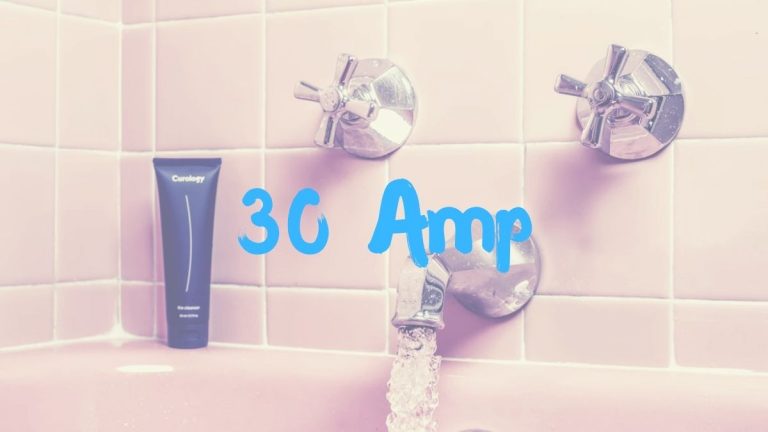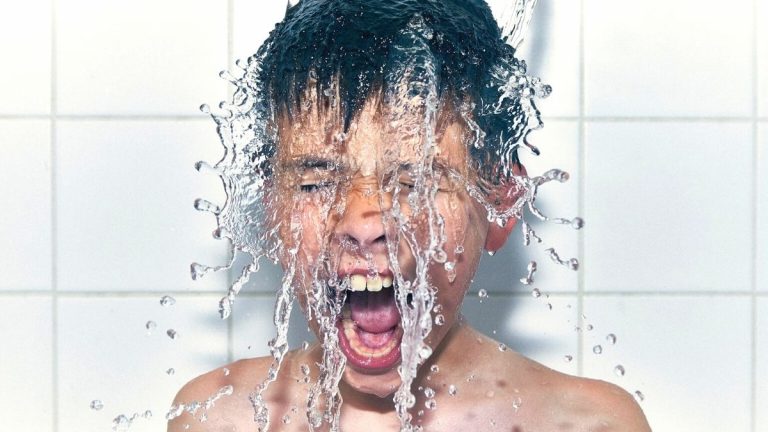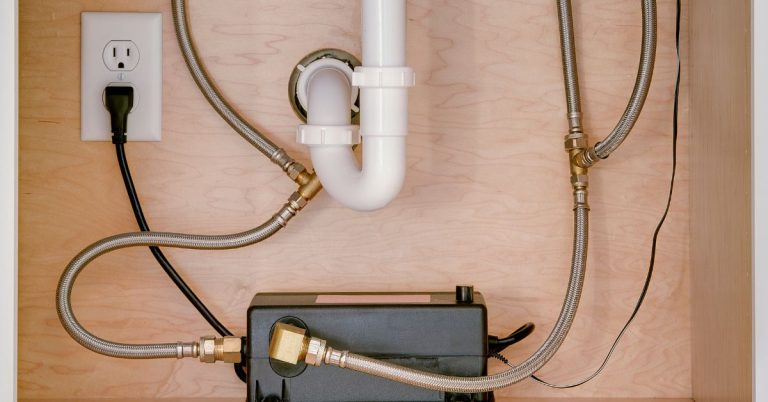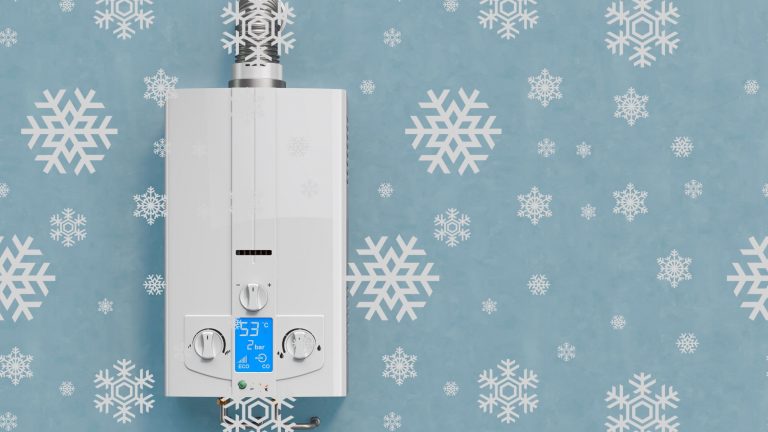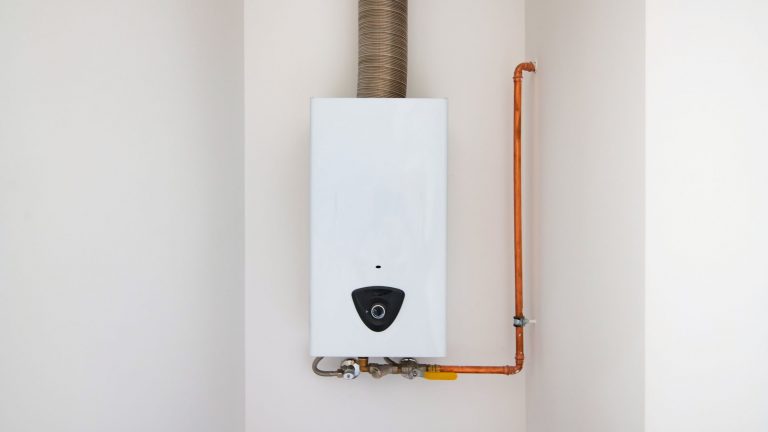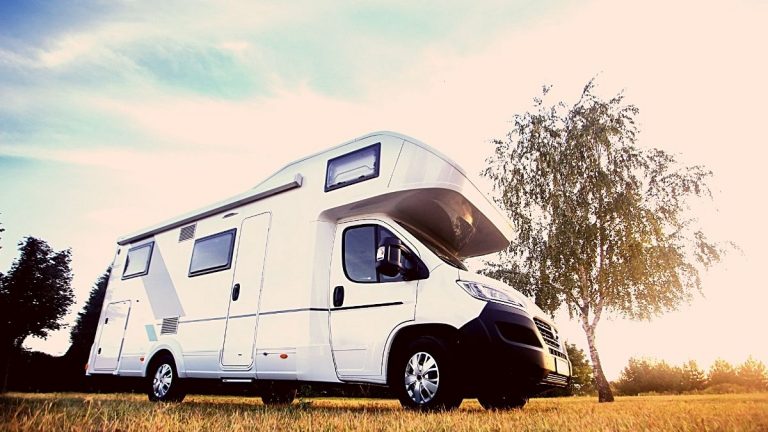7 Best Tankless Water Heaters for Well Water in 2023- Top Picks!
Looking for the best tankless water heater for well water? I have got you covered so just read on.
Contrary to popular speculation, tankless waters are just as good and better or more efficient for well water than tank models. If you size your tankless water heater properly (which I will teach you later on) and do the maintenance regularly then you will be up for a smoother experience.
In this guide, I have researched and analyzed 7 ideal tankless water heaters in both gas and electric fuel types with reasons as to why you should choose them.
Finally, I have also included a brief guide that will help you make the final decision and understand specifics. So without any further ado, let’s jump straight into it.
REVIEWS: 7 best tankless water heaters for well water
Rheem RTGH-RH11DVLP
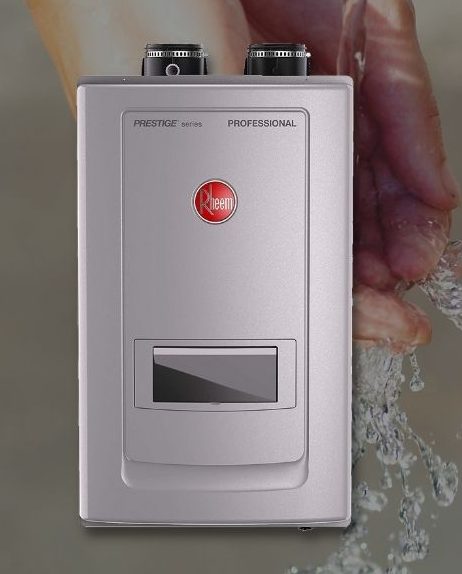
Highlights
- Activation flow: 0.5 GPM
- Max flow: 11 GPM
- Type: Condensing
- Input: 199,000 BTUs max
- Fuel: NG/LP
The Rheem prestige series RH11DVLP is one of the biggest hot water output models in the residential water heater segment. Since well water is usually cooler than municipal water, the hot water output gets reduced. This gas-fired tankless water heater can optimally deliver you upto 8-9 GPM water flow with well water in most weathers. Expect the flow drop to upto 7-8 GPM if you live in Northern cold climates. That means you anticipate using 2-3 bathroom showers at the same time in the North region.
The Prestige series also has an impressively low activation flow of just 0.5 GPM. The tankless model is available in both natural gas and liquid propane variants. A condensing water heater is more than 10% efficient compared to the non-condensing model. The uniform energy factor or UEF stands at 0.94.
RH11DVLP equips an ultra-low NOx emission burner that helps keep greenhouse footprints low. And finally, it has a built-in recirculation system for faster water delivery. But be aware you will still need to buy the pump separately.
Pros
- Premium and robust design that lasts long
- Highly efficient water heating technology
- Upto 0.94 UEF rate
- Doesn’t require expensive steel venting
- 12 years warranty on heat exchanger
- Energy-star certified
- Support upto 4 bathrooms at a time
Cons
- Requires professional installation for warranty
- Slightly overpriced
2. Noritz EZ98
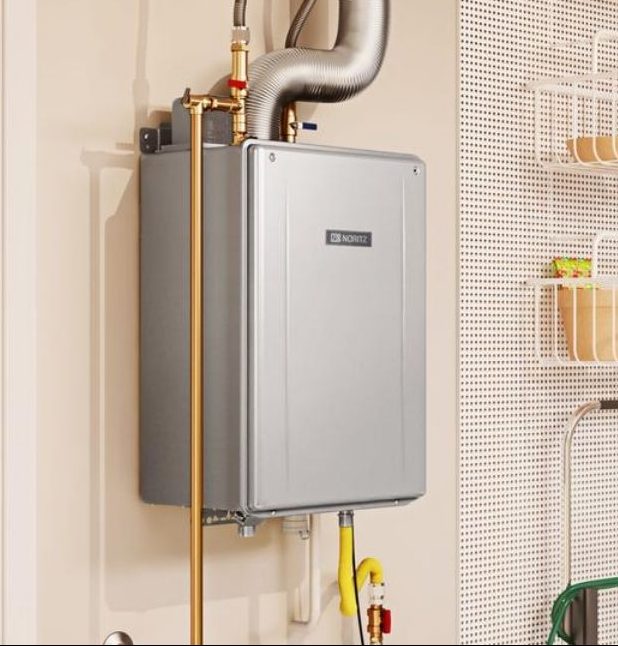
Highlights
- Activation flow: 0.5 GPM
- Max flow: 9.8 GPM
- Type: Condensing
- Fuel: NG/LP
- Input: 180,000 BTU Max
Noritz is a decent American brand that you can rely on for longer service and to efficiently heat your well water. The EZ98 model sports a 9.8 GPM Max flow rate at a 35°F temperature rise and with colder well water, you should expect a buffer of a few GPMs.
It is a condensing model so on the efficiency part you are not gonna have any complaints. The model has more than 0.97 UEF which saves money on energy bills in the long run. Noritz is available in both natural gas and liquid propane options. You can install this unit either indoors or outdoors as per your preference.
Speaking of the construction, the EZ98 equips a double stainless steel heat exchanger backed with 25 years of warranty on it. The 180k BTU heating capacity can be controlled via Wifi which you will have to purchase separately. The water heater is eligible for a $300 rebate.
Pros
- Best-in-class build quality
- Upto 9.8 GPM hot water output sufficient for 3 bathrooms using well water
- Highly energy efficient with UEF 0.97
- It’s a condensing model so you can use cheap PVC for venting
- CSA and Energy Star-certified
- 25 years of impressive warranty on heat exchanger
Cons
- Slightly expensive
- The wifi module needs to be purchased separately
3. Rinnai RU160eN
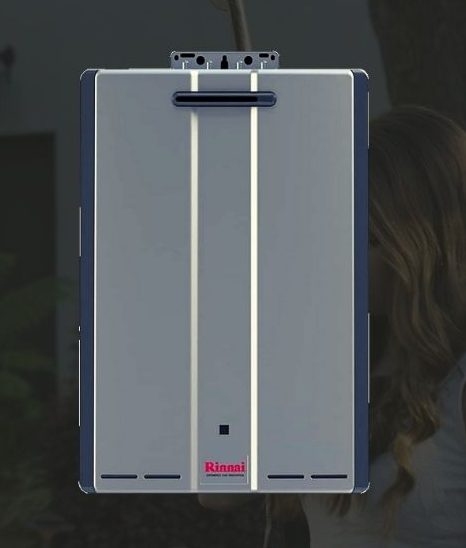
Highlights
- Max flow: 9 GPM
- Type: Condensing outdoor
- Fuel: Natural Gas
- Input: 160,000 BTU Max
One of my favorites in this list of best tankless water heaters for well water is this Rinnai RU160eN. The midsized appliance can shell out upto 7 GPM of hot water when cold well water is supplied. Of course, the output will vary based on the hot water temperature you want but roughly estimating, the unit can feed upto three bathrooms easily or two bathrooms and kitchens at the same time.
Being a condensing model, the RU160eN has an impressive efficiency rate, and since it’s also outdoor that means saving your indoor space and no need for an expensive venting system.
Rinnai RU series models are equipped with support for recirculation technology so you can use the special pumps to reduce cold water bursts and get hot water without much waiting period.
It also has WiFi control capability but the hardware for this is sold separately.
Pros
- Decent hot water flow for the mid-sized family using a well water source
- Impressive 0.92 UEF saves energy
- 15-year warranty on heat exchanger
- Recirculation and WiFi support
Cons
- I would not advise for cold regions since it’s an outdoor unit and freezing temperature will be too much for it.
- I think the price is a little high for the size.
4. Rheem Performance Plus
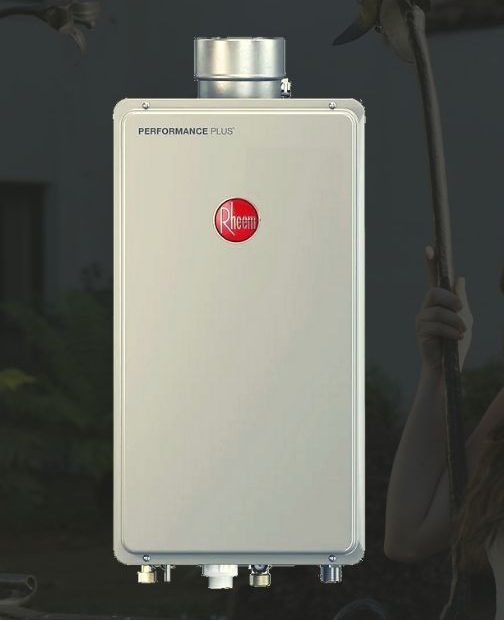
Highlights
- Activation flow: 0.4 GPM
- Max flow: 9 GPM
- Type: Non condensing, indoor
- Fuel: LP/NG
- Input: 160,000 BTU Max
If you are looking for something more affordable in the gas-fired tankless water heater segment for well water or you have a household of upto 2 bathrooms then you should consider the Rheem Performance Plus series’s 7 GPM model.
The mid-efficiency tankless water heater can deliver hot water to two water-saving showers and a faucet at the same time. Being a non-condensing model means an average fuel efficiency of 0.82 UEF and also the need for an expensive stainless steel venting system. The unit packs a sophisticated low NOx burner that provides efficiency and helps keep the environment clean.
Rheem PP series can work at an elevation of upto 9,800 ft so even if you live on hills then it’s no problem.
Pros
- Ideal for households of upto 2 bathrooms
- Affordable price and can be eligible for upto $300 in rebate
- CSA certified model
- Consistent water temperature
Cons
- Average fuel efficiency i.e.0.82 UEF
5. Rinnai-V53DeN
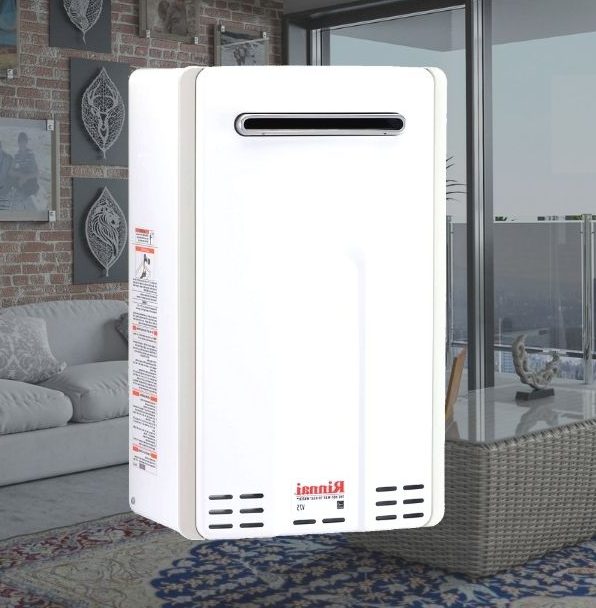
Highlights
- Max Flow: 5.3 GPM
- Type: Outdoor non-condensing
- Fuel: Natural Gas
- Input: 120,000 Max
This is the second model from Rinnai in this list that I would like to introduce to you. The Rinnai V53DeN is a small, yet perfect solution for two-bathroom households living in the southern US. Since it also has sophisticated scale detection, it alerts you when it’s time to flush your water heater. This is an important feature when you are heating the well water which is usually full of minerals.
Speaking of hot water output, the standard rate provided by the manufacturer is 5.3 GPM at a 35°F temperature rise. With well water in the southern region, you can expect somewhere 4 GPM of flow which should be enough to run two low-flow showers simultaneously but for those living in the northern region where the temperature goes freezing then you can only run a shower at a time. I will advise selecting one of the above options for cold climates and a well-water combo.
That said, being an outdoor unit, the Rinnai V53DeN saves your precious home space and money on the venting system.
Pros
- Compact and space-saving ideal for a small family household of two bathrooms in warm climates
- Saves money on venting
- CSA certifiedn10-year warranty on heat exchanger
Cons
- Not ideal for cold climates unless you have a small family that doesn’t use a lot of water at the same time
6. Stiebel Eltron Tempra 36+
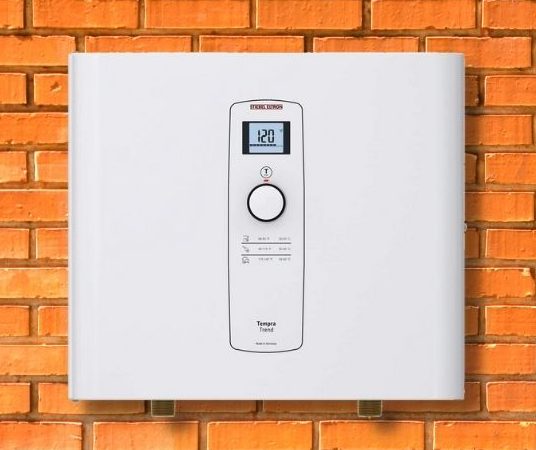
Highlights
- Max flow: 7 GPM
- Power: 36kW, 240Volt
- Service req: 300Amps
- Breaker req: 3x50Amp Double Pole breaker
Now that we have finished up with a gas-fired tankless water heater, let’s have a look at some electric models as well for well water. These are perfect for regions with gas supply issues or for any reason that you prefer an electric counterpart.
The Stiebel Eltron is a German brand known for its robust electric tankless water heater and 36 kW is their largest in the residential segment. It can render more than 7 GPM of hot water in the warmer Florida region. But since we are going to use it with well water, let’s keep it to 5 GPM of conservative value. You can use this model for a 2-and-a-half bathroom setup. I won’t advise electric models for colder regions like Minnesota but if you still insist then expect an even lower flow of upto 3 GPM.
That said, the Tempra 36 equips a triple copper heat exchanger structure that has 7 years of warranty on it. It’s way silent in operation compared to the gas model. It’s not even there. The water heater is CSA-certified.
Pros
- Silent operation compared to gas models
- More energy efficient than the gas tankless water heater
- Ideal for regions with warm climates
- Upto 7 GPM hot water flow rate
- Doesn’t require ventingnCSA certified
Cons
- Not ideal for cold climates
- Doesn’t have freeze protection
- May require an expensive service upgrade
7. Ecosmart Eco 27kW
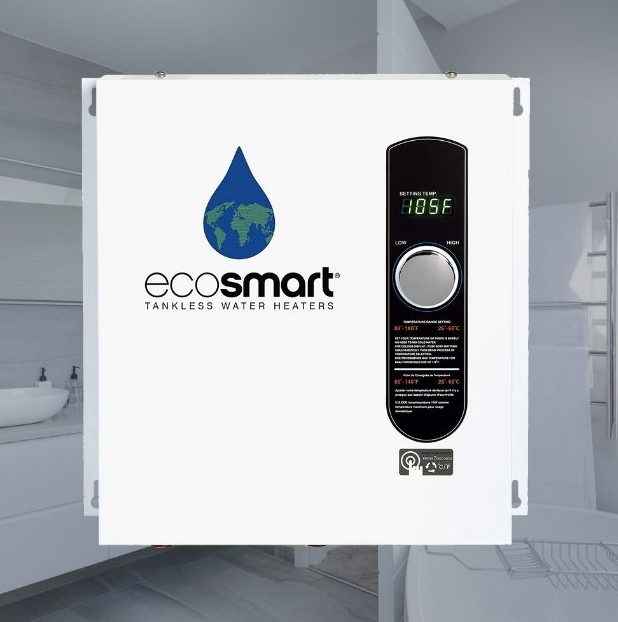
Highlights
- Max flow: 6 GPM
- Power: 27kW, 240volt
- Service Req: 200 Amps
- Breaker Req: 3x40Amp Double Pole
This is the last tankless water heater that is an ideal option for well water heating. The Ecosmart Eco is a popular electric tankless water heater series, especially in warm areas and with people who don’t want gas-powered appliances.
Equipped with 27kW triple copper heating chambers, the tankless unit can output upto 6 GPM hot water at 35°F rise. In colder climates, you should be able to operate one and a half bathrooms with this model. The self-modulation technology of electric water heaters helps reach more than 99% in energy efficiency.
The 27Kw model can draw more than 120Amps of current and it’s advised to have at least 200 Amps of service for smoother operation.
Pros
- Equips self-modulation technology that improves efficiency to upto 99%
- Ideal for warm climates
- Cheaper than the gas water heater
- Requires no venting system
Cons
- May need an expensive service upgrade
- You must register the appliance within 30 days of purchase for a warranty or it will void
- Not so good for cold climates
Tankless water heater and well water, what’s the deal?
A lot of people have a misconception that tankless water heaters don’t work with well water or are at least confused about it. There are a few reasons for this, including the fact that usually, well water is colder than municipal water, is more mineralized and hard, and usually has low water pressure. While all of these are valid reasons but are easily fixable too.
First of all, for cold well water, if you buy a tankless water heater of proper size then this can be solved. Here’s a brief sizing guide to help you out.
The second is the minerals. Now you can easily descale your tankless water heater annually and that should take care of it or you can install a water softener on the water-feeding side in line with tankless and you can fix the issue of hardness.
For the final important issue of water pressure, yes, if you have low water pressure, tankless units don’t ignite due to safety reasons but you can solve that too. If you install a water pressure regulator that maintains the water pressure then that will do the job.

